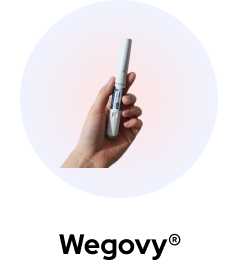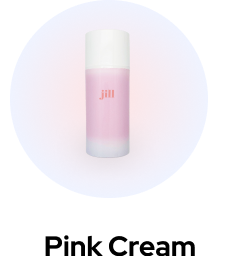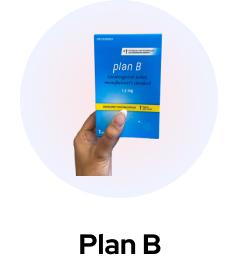If you’ve started Ozempic then you may be wondering what lifestyle changes you may need to make — for example, how exactly does it interact with alcohol and can you drink alcohol while taking Ozempic? Or should you avoid consuming alcohol in combination with it?
Regardless of whether you’re already on Ozempic or considering starting it, it’s a good idea to familiarize yourself with how it can react with alcohol.
In this article we’ll cover:
- What Ozempic is
- Whether alcohol consumption while on the drug is safe
- The impact alcohol has on Ozempic’s effectiveness
- Side effects and risks you should be aware of
- How alcohol affects you as a type-2 diabetic
- Everything you should know about blood sugar levels with alcohol and Ozempic
- Precautions and guidelines for drinking while on Ozempic
- Type-2 diabetes considerations with alcohol
- How to drink safely with diabetes
- Frequently asked questions.
Let’s jump straight in!
Ozempic was developed by Novo Nordisk in 2012 and is a brand name for semaglutide. You may have also heard of it referred to by other brand names, such as Wegovy or Rybelsus. It is a medication prescribed to patients who need help managing the symptoms of type-2 diabetes, or for those with chronic obesity and other weight-related conditions.
Semaglutide is able to mimic the properties of a hormone that occurs naturally in the body known as glucagon-like peptide-1 (GLP-1) receptor agonists. While it affects insulin production and glycemic control, a side effect of semaglutide is that it may be able to help with weight management, too. This is why it’s often prescribed for patients who suffer from obesity.
Another benefit of semaglutide is that studies have shown it can significantly improve cardiovascular health, and prevent major cardiovascular events, including heart disease and strokes, in those who are at high risk.
The medication is self-administered by patients using an Ozempic Pen (similar to an EpiPen) by injection subcutaneously (ie, under the skin into the fatty layer of tissue). Each Ozempic Pen contains enough semaglutide for four doses (one dose per week) and comes in a variety of different dosages. Injections may be made into the thigh, abdomen, or upper arm, and the injection site should be rotated each time.
Ozempic has been approved for use by Health Canada in adults with type-2 diabetes, or who have a BMI of 27 or higher. It is not approved for use in those with type 1 diabetes or in children.
If you are unable to tolerate Ozempic or semaglutide for any reason, ask your medical team for information about other drugs, such as metformin.
The active ingredient in Ozempic, semaglutide, is the driving force behind all of the benefits that this medication can provide.
Semaglutide is a GLP-1 receptor agonist which mimics the functions that the GLP-1 hormone typically provides after food has been consumed.
These functions include stimulating the production of insulin, maintaining healthy blood glucose levels, and reducing your appetite or achieving satiety after eating.
For those suffering from type-2 diabetes or weight-related conditions, experiencing these GLP-1 hormone functions at an increased rate can be incredibly helpful.
This is exactly what GLP-1 receptor agonists, such as semaglutide, do and why Ozempic can be such an effective medication.
Can You Drink Alcohol While Taking Ozempic?
If you’re considering taking Ozempic or are already on this medication, you may have asked yourself a very important question: can I drink alcohol while taking Ozempic?
To put it simply, you likely won’t be in any immediate danger if you decide to have a drink or two while taking Ozempic.
No directly harmful interactions between Ozempic and alcohol use have been recorded, so, if you truly desire a drink — as long as you aren’t drinking every day in large amounts — it’s generally considered safe.
However, drinking while taking Ozempic does directly contradict the purpose of the treatment and can potentially interact with Ozempic’s efficacy, not to mention that it could lead to heightened side effects.
You should especially take care if you are being treated for type-2 diabetes, as drinking can affect your glycemic control and may result in altered blood sugar levels, and in some cases could be especially harmful to your health.
While there is no specific diet you should follow while on Ozempic, avoiding foods high in fat and sugar, as well as alcohol, will potentially help you tolerate the drug better. Case studies have also shown that the drug is most effective when alcohol is minimized or eliminated from your diet.
Of course, much of this is dependent on your personal circumstances, and you should consider the potential repercussions before drinking alcohol while taking Ozempic. Regardless, drinking on Ozempic requires careful monitoring and control.
If you have any concerns or if you suffer from alcohol use disorder, be sure to discuss this with your medical team before starting Ozempic.
How to Ensure Safe Alcohol Intake While on Ozempic
Depending on your reasons for taking Ozempic, ensuring that your alcohol consumption isn’t negatively impacting your health will look a little different for each individual. It also depends on the type and quantity of alcohol.
If you’re taking Ozempic to aid with weight management, it’s a good idea to not drink too many high-calorie drinks as it might affect the weight loss benefits of Ozempic.
If blood sugar levels are a concern for you, it’s a good idea to limit your alcohol intake while on Ozempic, and it needs to be balanced with your overall diabetes management plan, not to mention it might necessitate adjustments in Ozempic dosage.
Experts recommend that you should limit your alcohol to one drink per day for women and two for males. This will help avoid drastic spikes and drops in blood sugar.
Regardless of your reasons for taking Ozempic, try to avoid high-alcohol spirits, and opt for low-alcohol and low-sugar options instead.
Impact of Alcohol on Ozempic Effectiveness
There are several ways that alcohol can impact the effectiveness of Ozempic and potentially negate some of the benefits that this medication provides. There are also some health risks that can come along with drinking excessive amounts of alcohol while on Ozempic.
Variables Influencing Ozempic’s Effectiveness
There are several variables that may impact the effectiveness of Ozempic. Some of the most important external variables that you should consider include:
- Calorie consumption and empty calories
- Sugar consumption and the impact on blood sugar levels
- The combined effects of alcohol and Ozempic that may contribute to pancreatitis and damage of the kidneys.
If you’re on Ozempic for either type-2 diabetes control or for assistance with weight management, these are all things that could negatively impact the effectiveness of the drug and your results.
Ask yourself: is it more important to you to have a drink, or to control your blood sugars and manage your weight more effectively? You may find that, after some time on Ozempic, your desire to drink subsides, anyway!
Potential Interactions Between Alcohol and Ozempic to Be Aware Of
While drinking alcohol on Ozempic doesn’t have any direct negative impacts, there are other aspects of alcohol consumption to consider if you are also taking Ozempic.
For one, drinking alcohol while on this medication may exacerbate some of the side effects of this drug, such as nausea and vomiting, which should be considered in the light of overall health and well-being.
Another aspect of alcohol consumption to consider is the effect it can have on your weight, heart, and blood sugar.
If you are taking Ozempic, chances are you either have type-2 diabetes or chronic obesity and subsequent weight-related conditions. If you are consuming a large amount of alcohol, it is a good idea to keep an eye on how this is affecting both your condition and mental health.
A less common but severe impact of drinking alcohol while on Ozempic is pancreatitis and kidney damage. Both alcohol and Ozempic can increase the risk of pancreatitis and kidney damage, so taking Ozempic while also frequently consuming large amounts of alcohol can increase this risk even more.
If you aren’t careful, frequent and excessive alcohol consumption could present some health risks or negate some of the positive effects of Ozempic, and can pose risks if not appropriately managed.
Side Effects and Risks with Ozempic
As is the case with almost every medication, there are a range of side effects that come along with taking Ozempic.
While this medication is not one that is notorious for having severe side effects, they still exist and can cause some discomfort. It is important to keep an eye on these side effects and ensure that you are not experiencing anything out of the ordinary.
If you believe that you are experiencing particularly severe or concerning side effects, be sure to consult with your medical team as soon as possible.
Additionally, there are a number of medications and supplements that are contraindicated for Ozempic. Be sure to disclose your full medical history and any prescription medications, vitamins, or supplements you’re currently taking to your medical team before starting this drug.
Note that if you any of the following applies to you, you should not take Ozempic:
- A personal or family history of medullary thyroid cancer (MTC)
While not confirmed in humans, semaglutide studies in rats showed that the rats developed thyroid cancer.
- A personal or family history of multiple endocrine neoplasia syndrome type 2 (MEN 2)
- An allergy to semaglutide
- Are pregnant, breastfeeding, or intending on conceiving in the next couple of months
There are limited studies on the effect of semaglutide on those who are pregnant or infants.
Potential Side Effects of Ozempic
Some of the commonly-reported side effects from healthcare professionals regarding Ozempic include:
- Nausea
- Vomiting
- Abdominal pain
- Constipation
- Diarrhea
- Dizziness
- Fatigue
- Gas.
These side effects tend to be the most severe when first starting the medication or adjusting to an increased dosage, but can persist for a significant amount of time.
Never hesitate to reach out to your medical team if you believe that you are experiencing side effects that are extremely severe, long lasting, or unusual.
There are also a number of more serious side effects associated with Ozempic and semaglutide. While rare, if you experience any of the following, discontinue your use of Ozempic immediately and contact your medical team, or go directly to your local ER:
- Hypoglycemia
- Risk of thyroid cancer
- Gallbladder issues
- Pancreatitis (inflammation of the pancreas)
- Vision issues (diabetic retinopathy)
- Allergic reactions.
If you have type-2 diabetes, there are some risks surrounding alcohol consumption in and of itself that you should be aware of.
We’re already discussed the way that alcohol can contribute to pancreatitis and kidney damage, and how high calorie alcohol can be detrimental to weight management, but what other risks are there?
For one, regular drinking in large amounts can reduce your body’s sensitivity to insulin and affect the stability of your blood sugar. This could lead to hypoglycemia, particularly if you are drinking alcohol on an empty stomach.
Heavy drinking with type-2 diabetes has also been known to increase the risk of both diabetic ketoacidosis (DKA) and hypertriglyceridemia.
We know that alcohol can impact those who already suffer from type 2 diabetes, but can alcohol increase the risk of developing type 2 diabetes in those who do not have it? The short answer is yes, it can.
Let’s take a look at some of the ways that alcohol can increase the risk of somebody developing type-2 diabetes, and how to reduce this risk.
Drinking large amounts of alcohol regularly can reduce the body’s sensitivity to insulin, which is not only harmful to those who have type-2 diabetes, but can also actually increase the risk of it developing.
It can do this with chronic pancreatitis, one of the potential side effects of heavy drinking, which can then lead to type-2 diabetes, as well as frequent consumption of high-sugar, high-calorie alcohol.
In the case of the latter, this increases the risk of developing obesity, which in turn increases the risk of developing type-2 diabetes.
There are many different measures that you can take in order to decrease your risk of developing type-2 diabetes.
Reducing your alcohol intake is one step that you can take, which can in turn reduce the likelihood of chronic pancreatitis or obesity – both contributing factors when it comes to developing type-2 diabetes.
Other measures that you can take are maintaining a healthy diet and exercise routine, and avoiding smoking.
Monitoring Blood Sugar Levels with Alcohol and Ozempic
If you have issues surrounding your blood sugar levels, it is important to be aware of the ways that alcohol and Ozempic can affect this: both separately and in combination with each other. If you aren’t careful with your alcohol consumption while taking a diabetes medication such as Ozempic, you can run the risk of hitting dangerously low blood sugar levels.
The Effect of Alcohol on Blood Sugar Levels
The consumption of alcohol can have a significant effect on your blood sugar levels. But why exactly does this happen?
It all comes down to your liver.
When you drink alcohol, your liver is put to work processing all of the alcohol that you consume. While it is busy processing this alcohol, it stops releasing glucose. Due to this, your blood sugar levels can rapidly decrease, which in turn increases the risk of low blood sugar.
This occurrence is more likely if you take insulin or other diabetes medications, such as Ozempic.
Ozempic’s Role in Regulating Blood Sugar Levels
Ozempic works hard to regulate your blood glucose levels, which is why it is a good idea to avoid drinking large amounts of alcohol which could interfere with this process.
The active ingredient and GLP-1 receptor agonist in Ozempic, semaglutide, focuses on proteins that are located on the beta cells of the pancreas. Since this is the organ that is responsible for insulin production, Ozempic ends up encouraging this production in the presence of high blood sugar levels.
The insulin is produced, it combats the high blood sugar, and your blood sugar levels can maintain a healthy middle ground.
Guidelines and Precautions for Alcohol Consumption on Ozempic
If you are taking Ozempic and aren’t wanting to do away with alcohol entirely, then don’t worry, you don’t have to quit drinking completely! There are just some guidelines and precautions that you should follow to ensure you stay safe and healthy.
What Precautions Should be Taken When Drinking Alcohol With Ozempic?
What happens when both alcohol and Ozempic are lowering your blood sugar? The answer is a dangerously low blood sugar level and an increased risk of hypoglycemia. This is why it is important to consume alcohol with caution while taking diabetes medications.
You can do so by frequently checking and monitoring your blood sugar levels, limiting yourself to 1–2 drinks per day, and keeping a close eye on any symptoms of low blood sugar that may arise.
Drinking Beer Safely While Taking Ozempic
While also taking blood sugar levels into consideration, another aspect of drinking beer on Ozempic to consider is weight gain.
Beer is known for being high in calories and contributing significantly to weight gain. While Ozempic can assist greatly in weight loss, drinking beer heavily and frequently can undo much of this work very quickly.
It is important to limit your beer intake while taking Ozempic, particularly if you are facing issues such as being overweight, obese, or are affected by weight-related conditions.
Special Considerations for People with Type 2 Diabetes Who Drink Alcohol
There are many different issues that come along with drinking alcohol that people with type 2 diabetes should take into consideration. Some of these include:
- Rapid changes in blood sugar levels
- Caloric content and weight gain
- Pancreatitis
- Kidney damage
- Diabetic ketoacidosis
- Hypertriglyceridemia.
If you have type-2 diabetes and also drink alcohol, it is a good idea to familiarize yourself with these issues, what their symptoms are, and what amount of alcohol is likely to exacerbate them.
If in doubt, consult with your medical team for advice on what amount of alcohol is suitable for you.
Guidelines for Drinking Alcohol Safely with Diabetes
If you have type-2 diabetes and want to drink alcohol safely, there are some guidelines that you can follow in order to decrease health risks.
- In one day, do not drink more than two drinks (males) or one drink (women)
“One drink” can be: a 5 oz glass of wine, a 12 oz handle of beer, or a 1.5 shot of liquor.
- Avoid drinking alcohol that is particularly high in sugar, or mixing alcohol with anything high in sugar
Mixing alcohol with water or diet juices and sodas is recommended.
- Drink slowly
- Do not drink on an empty stomach
- Wear your medical alert bracelet
If you have a medical alert bracelet indicating that you have type-2 diabetes, ensure that you are wearing it at all times while drinking.
These are just a few guidelines and suggestions for ways to drink alcohol safely with type-2 diabetes. Depending on your specific symptoms and condition severity, there may be other guidelines that you should adhere to.
Always follow directions given by your medical team regarding consuming alcohol with type-2 diabetes.
Key Takeaways
At the end of the day, there are no direct issues when it comes to drinking alcohol while taking Ozempic. There are, however, several health risks that can arise that you should be aware of.
Low blood sugar levels, weight gain, pancreatitis, and kidney damage are just some of the risks that come along with drinking alcohol while on Ozempic.
Always drink with caution and limit your intake to avoid severe health risks, and adhere to any advice that may be given to you by your medical team.
Frequently Asked Questions
Should I take special precautions if I am being treated for type 2 diabetes?
You should especially take care if you are being treated for type-2 diabetes, as drinking can affect your glycemic control and may result in altered blood sugar levels, and in some cases could be especially harmful to your health.
Does Ozempic interaction with alcohol differ from other diabetes medications?
While the way that Ozempic works differs from other diabetes medications, it has the same risks when taking them in combination with alcohol. The precautions that you should take when drinking alcohol on Ozempic are also largely the same as other medications.
Can alcohol affect Ozempic’s weight loss benefits?
Yes, alcohol can affect Ozempic’s weight loss benefits. Alcohol can be high in calories, high in sugar, and increase your appetite. This can contribute to weight gain, and negate many of the effects that Ozempic has when it comes to weight loss.
However, it’s worth noting that this is only in the case of frequent, heavy drinking. If you are consuming alcohol within the recommended limit and maintaining a healthy diet and good exercise routine, there should be little to no impact on your weight.
How should you respond to a hypoglycemic event after drinking alcohol while on Ozempic?
If you are experiencing a hypoglycemic event after drinking alcohol while on Ozempic, it is important to act quickly.
Doctors will often recommend the “15-15” rule: consume 15 grams of carbohydrates and recheck your blood sugar levels after 15 minutes have passed.
If your blood sugar levels remain low, the rule requires you to repeat these steps until your blood sugar level is above 70 mg/dl.
If you are concerned about your blood sugar levels and find that they aren’t rising, consult with your medical team.
Should I Drink If I Am Using Ozempic For Weight Management?
If you’re taking Ozempic to aid with weight management, it’s a good idea to not drink too many high-calorie drinks as it might affect the weight loss benefits of Ozempic.
If blood sugar levels are a concern for you, it’s a good idea to limit your alcohol intake while on Ozempic, and it needs to be balanced with your overall diabetes management plan, not to mention it might necessitate adjustments in Ozempic dosage.
Experts recommend that you should limit your alcohol to one drink per day for women and two for males. This will help avoid drastic spikes and drops in blood sugar.
Regardless of your reasons for taking Ozempic, try to avoid high-alcohol spirits, and opt for low-alcohol and low-sugar options instead.













 (US)
(US)